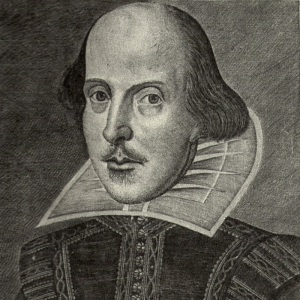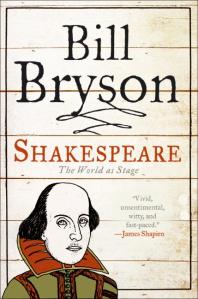Who is this guy?
 Even though I'm certain the movie "Anonymous" is going to irritate the hell out of me, I will see it. Mostly because I will watch just about any Elizabethan costume drama. And because some weird voyeuristic part of me gets a kick out of seeing people get all worked up over the Oxford vs. Stratford argument. This is the century-old debate over whether William Shakespeare as we know him -- the author of all those comedies, tragedies, histories and sonnets -- was a glovemaker's son-turned-actor from Stratford or the aristocratic Earl of Oxford, who merely used the actor's name to shield himself from potential social and political reprisals. The movie tells the Oxford version of the story and will doubtless create endless new arenas for debate, a bunch of new Oxfordians and irritate the hell out of Stratfordians (which includes the vast majority of the scholarly establishment). I only hope longtime Oxfordians get equally riled up because now most of the public is going to believe Roland Emmerich -- a guy best known for disaster pics like Independence Day, The Day After Tomorrow and 2012 -- came up with this theory.
My position is: I don't really care. I'm a sentimental Stratfordian merely because I like the idea that a schmoe of ordinary birth could turn out to be the greatest literary genius of the English language. I'm also cynical about conspiracy theories, especially those that would require conspiring on behalf of a whole lot of people. (This piece in the New York Times has a great line about the ability of Shakespeare scholars to pull off conspiracies.) But I think the plays are the things -- what matters is that we have this treasure trove of literary genius, not which guy's hand held the pen.
Even though I'm certain the movie "Anonymous" is going to irritate the hell out of me, I will see it. Mostly because I will watch just about any Elizabethan costume drama. And because some weird voyeuristic part of me gets a kick out of seeing people get all worked up over the Oxford vs. Stratford argument. This is the century-old debate over whether William Shakespeare as we know him -- the author of all those comedies, tragedies, histories and sonnets -- was a glovemaker's son-turned-actor from Stratford or the aristocratic Earl of Oxford, who merely used the actor's name to shield himself from potential social and political reprisals. The movie tells the Oxford version of the story and will doubtless create endless new arenas for debate, a bunch of new Oxfordians and irritate the hell out of Stratfordians (which includes the vast majority of the scholarly establishment). I only hope longtime Oxfordians get equally riled up because now most of the public is going to believe Roland Emmerich -- a guy best known for disaster pics like Independence Day, The Day After Tomorrow and 2012 -- came up with this theory.
My position is: I don't really care. I'm a sentimental Stratfordian merely because I like the idea that a schmoe of ordinary birth could turn out to be the greatest literary genius of the English language. I'm also cynical about conspiracy theories, especially those that would require conspiring on behalf of a whole lot of people. (This piece in the New York Times has a great line about the ability of Shakespeare scholars to pull off conspiracies.) But I think the plays are the things -- what matters is that we have this treasure trove of literary genius, not which guy's hand held the pen.
At least the whole tantalizing question of Shakespeare's identity and his legacy, and all the unanswered questions around him, has left us with so much material for so many interesting books, fiction and non. If you'd like to read a Shakespeare biography without signing over a couple weeks of your life, I highly recommend Bill Bryson's. It's part of the Eminent Lives series of briefish biographies by popular writers (as in nonacademic specialists, not potbiolers). The Key West Library has a large print copy which is 240 pages and it concludes with a chapter dealing with the various "claimants," ie. people who are not Shakespeare that people have proposed as the writers of Shakespeare's work. Stephen Greenblatt's Will in the World and Peter Ackroyd's biography also come highly recommended, though they're both quite a bit longer than Bryson's. And after reading this ringing Stratfordian defense by Simon Schama I've put in an Interlibrary Loan request for James Shapiro's Contested Will. Shapiro himself has also weighed in on the movie, in a New York Times op-ed.
But what I really like are modern crime novels where a long-lost Shakespeare talisman serves as the MacGuffin. My favorite is The Book of Air and Shadows by Michael Gruber. In that one, the Shakespeare artifact that has mysteriously surfaced after the centuries is a lost play about Mary Queen of Scots. Another that goes directly to the Stratford-Oxford question is Chasing Shakespeares by Sarah Smith. So does The School of Night by Alan Wall though it's less effortlessly entertaining (though highly intelligent) than the previous two. I'm told good things, too, about The Tragedy of Arthur by Arthur Phillips -- not so much a crime novel as a literary puzzlebox, from the descriptions, but it's got its own lost Shakespeare play, this one about King Arthur.
One thing I have not yet done, the stuff I have not read -- though I really should, if only justify lugging the giant Riverside Shakespeare around with me for the last 25 years -- are the works of Shakespeare. (I have read most of the works of Shakespeare -- I was an English major -- but not in adulthood, which I find makes a big difference in how you understand a lot of stuff they made you read in high school and college. Wasted on the young, as they say.)
![img_7378-stack-of-books-q67-303x500[1]](http://boneislandbooks.files.wordpress.com/2011/10/img_7378-stack-of-books-q67-303x5001.jpg?w=181)


